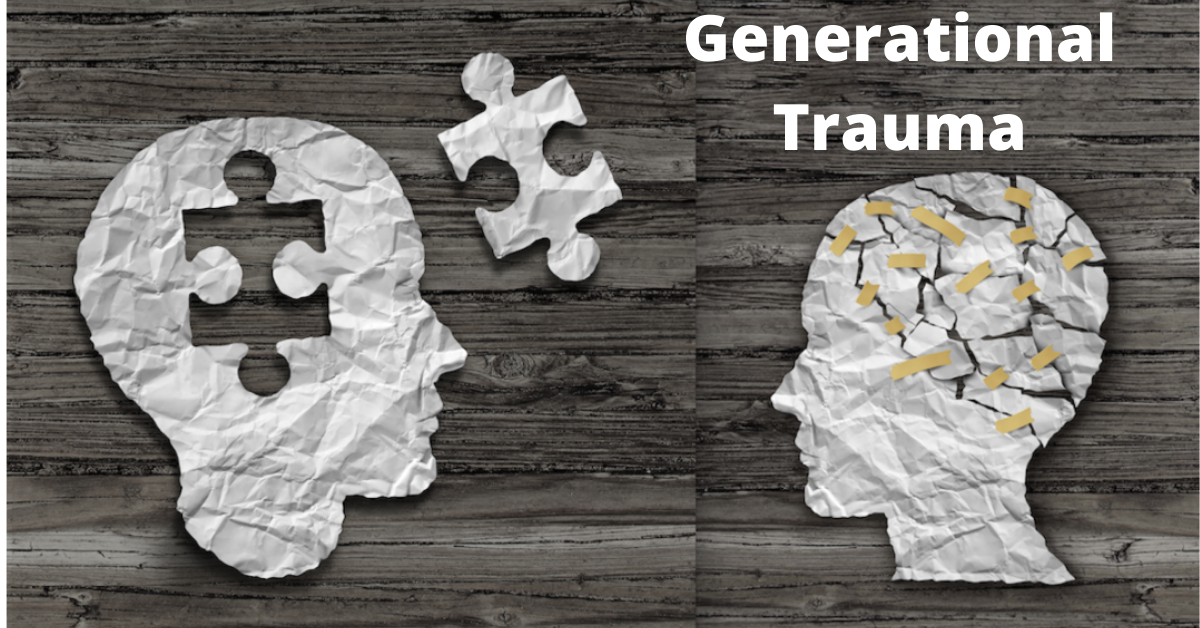Trauma can be very powerful for individuals, but it’s often more powerful for families that have trauma that runs for generations. Generational trauma is very significant because it can cause depression, anxiety, and even post-traumatic stress disorder (PTSD), but what is generational trauma? According to Dr. John G. Kuna and associates, generational trauma is defined as, “a type of trauma that is passed down from one generation to the next. It is often the result of a traumatic event or events that occur in a family’s history.” Generational trauma gets deeper than just the actions of others because it can also lead to changes within DNA methylation according to Dr. John G. Kuna. What this means, is that trauma can automatically go to your offspring leading to psychiatric disorders and behavioral problems.
Trauma can be hard to deal with and even harder to confront, but many families have been trying to overcome the trauma that was passed down to them and change their behavior, values, and habits. Sophomore Imani Caldwell noticed that her family was able to acknowledge the rooted trauma that they passed down, and started working to fix it so they can be a healthier family.
“I believe that in my family, they don’t like to communicate,” Caldwell said. “It’s very common for them to hold everything in and not express how they feel because they don’t like asking for help, but the whole point of having a family is having people to help you and having people to rely on.”
Families with stronger cultural traditions and values have a harder time fixing generational trauma because it’s been heavily influenced not only by family members but others who share the same culture. Senior Daniel Nsofor believed that the gender norms his family put on him and his sister are detrimental to their future and don’t help them for adulthood.
“In my family, gender norms are very normal,” Nsofor said. “Like my mother refused to teach me how to cook and that’s a basic life skill people need. And the same thing goes for my father and sister, my father doesn’t want my sister to know how to change her oil or the tire on her car so we had to learn these things on our own.”
Gender norms also play a part in generational trauma, Junior Bailey Cunningham, recognizes the gender norms in her family, and how they have affected her family. Cunningham said that the generational trauma in her family causes gender norms to be very present in her family.
“I’ve seen on both sides of my family that the women take on a more demanding role than the media,” Cunningham said. “They tend to not ask for help and do everything themselves because of how their mothers were and because of how my family would judge them if they did reach out for help.”
Newer generations of families have started to change their habits to be better for their children and also for themselves. Joaquin Soto, Art teacher, said that his family’s bad habits and traditions were passed down to his siblings and himself, but he was able to heal from the “toxic traditions” he said he inherited.
“I wasn’t neglected, but I felt neglected because I had to deal with things on my own and that affected the way I saw the world and people around me,” said Soto. “I’m currently working on breaking the patterns and cycles. Much of my art that I make now is influenced by my own trauma and experiences.” Soto went on to say how he’s worked on himself to be a better person not only for himself but his child.
Some people have experienced their families fixing trauma in the present time, Senior Callie Ward, is one of those people. Ward expressed that she’s seen the change in her family and how they’ve recently been trying to fix the problems they’ve been experiencing.
“Communication was a big thing in my family that was a problem, when I would communicate with them they would always seem to overreact or just get mad because of what I said,” said Ward. “But they’ve changed, I used to not trust them too much with information and I didn’t want to tell them things but now I feel more comfortable with them and I feel safe talking to them and I love the changes.”

